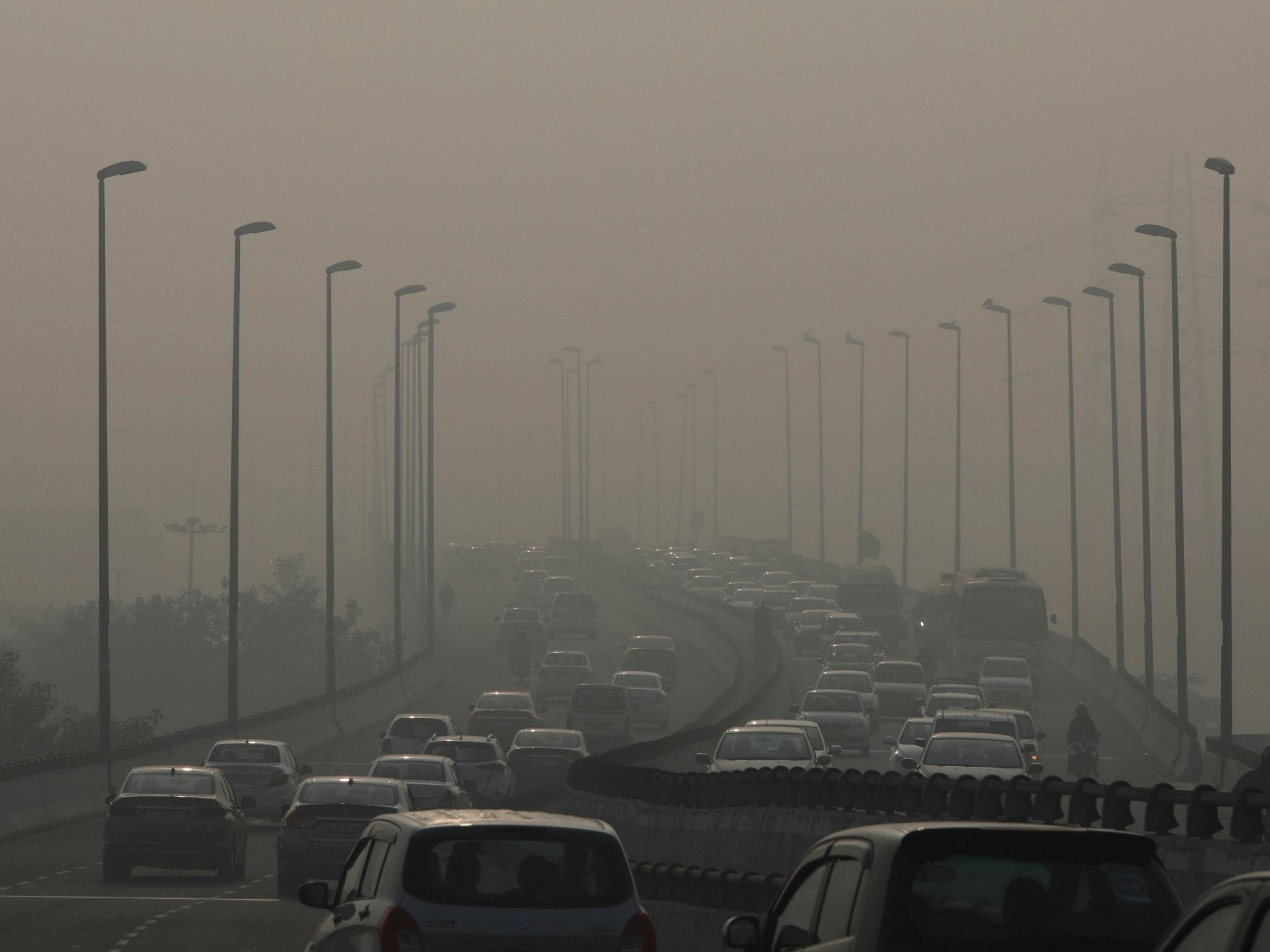22 of the top 30 most polluted cities in the world are in India
Seven million people die from air pollution each year, says World Health Organisation

Your support helps us to tell the story
From reproductive rights to climate change to Big Tech, The Independent is on the ground when the story is developing. Whether it's investigating the financials of Elon Musk's pro-Trump PAC or producing our latest documentary, 'The A Word', which shines a light on the American women fighting for reproductive rights, we know how important it is to parse out the facts from the messaging.
At such a critical moment in US history, we need reporters on the ground. Your donation allows us to keep sending journalists to speak to both sides of the story.
The Independent is trusted by Americans across the entire political spectrum. And unlike many other quality news outlets, we choose not to lock Americans out of our reporting and analysis with paywalls. We believe quality journalism should be available to everyone, paid for by those who can afford it.
Your support makes all the difference.The vast majority of the most polluted cities in the world are in India according to a new study from IQ AirVisual and Greenpeace.
Gurugram, a northern Indian city in the state of Haryana, is the world's most polluted city, while New Delhi, the country's capital, is ranked 11th worst globally.
Researchers studied the amount of fine particulate matter known as PM2.5 to gauge the extent of air pollution.
PM2.5, or particles of 2.5 micrometers or less in diameter, are dangerous because it lodges deep in the lungs.
The World Health Organisation (WHO) sets a daily mean air quality guideline of just 25 micrograms of PM2.5 per cubic meter of air.
According to the report, Gurugram's annual average concentration is 135.8 micrograms per cubic metre, which AirVisual classifies as "very unhealthy".
According to the WHO, seven million people die from air pollution each year, with nine out of 10 people globally breathing in polluted air.
In New Delhi the average annual concentration is 113.5 micrograms per cubic metre.
The city – found to be the world's most polluted capital – is notorious for its toxic air, which is caused by vehicle and industrial emissions, dust from building sites, smoke from burning rubbish and crop residue in nearby fields.
"Air pollution steals our livelihoods and our futures, but we can change that. In addition to human lives lost, there’s an estimated global cost of 225 billion dollars in lost labour, and trillions in medical costs," said Yeb Sano, executive director of Greenpeace Southeast Asia.
"This has enormous impacts, on our health and on our wallets."
Although Indian cities fare poorly in the new study, Greenpeace and AirVisual said conditions had improved drastically in China.
Average PM2.5 concentrations in cities in China fell by 12% from 2017 to 2018, according to Greenpeace.
China struggled for years to enforce environment rules and crack down on polluting industries, but it has benefited recently from vastly improved legislation and greater political will to combat poor air quality.
"In mainland China, in particular, this has led to significant improvements in year-on-year reductions in PM2.5 levels," the groups said in the study.
"The question which remains to be answered is whether there is enough political will to aggressively fight the health emergency India faces today and move away from polluting fuels and practices," said Pujarini Sen, spokeswoman for Greenpeace India.
Additional reporting by agencies
Join our commenting forum
Join thought-provoking conversations, follow other Independent readers and see their replies
Comments